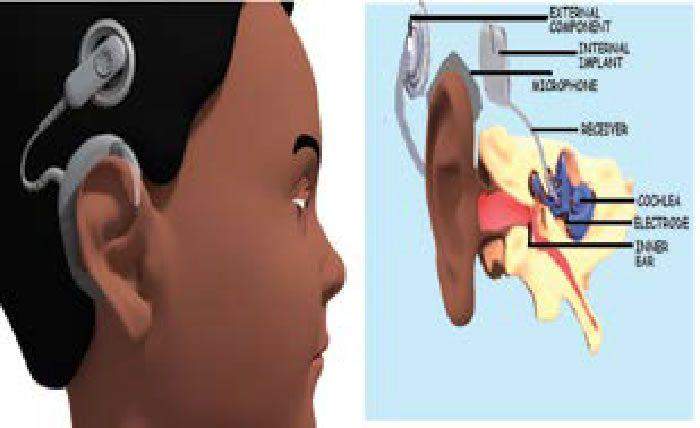The World Health Organization has revealed that almost 1.5 billion people globally are affected by hearing loss, making it the third leading cause of disability among all ages.
Factors can include perinatal and developmental causes, drug effects, infections, genetic abnormalities, poor management of jaundice, and poorly treated ear infections.
Technologically implanted hearing aids can support those with hearing loss, while a cochlear implant has become an advanced solution for those with severe hearing loss. The device serves as hope for those in the deaf and hard-in-hearing community. A cochlear implant is a surgically implanted device, which sends electric stimuli directly to the auditory nerves’ fibres in the cochlear.
There is little reliable data on the adoption of technological devices to combat hearing loss, and the use of cochlear implants is currently challenging. Lack of awareness and access to the procedure, the cost, and a shortage of experienced surgeons are significant factors affecting its acceptance in Nigeria.
While hearing loss can be congenital, acquired, or caused by genetic abnormalities, cochlear implants can aid those born deaf by helping to get sounds to the brain and improving speech and language acquisition. For those who have learned a language before deafness, the rehabilitation process is more manageable. For children who have not learned a language before implanting, they would need a series of teachings, interactions with children who can hear, and speech therapies to develop and understand language.
Despite the stigma that comes with wearing an external implant, cochlear implants provide hope to those with a hearing disability. The cost and lack of coverage by the National Health Insurance Scheme are prevalent challenges affecting the widespread adoption of the technology devices among the hearing community.
The National Health Insurance Scheme needs to address the issue of coverage to support the healthcare system and assist those experiencing hearing loss. Currently, efforts are in place to ensure newborns’ hearing is screened as a mandatory policy to reduce hearing disabilities and support rehabilitation efforts.
Finally, the government should recognize Nigerian sign language as an official language, allowing for more technology devices that are accessible to those with hearing disabilities. This recognition will positively impact the nation’s hearing-impaired community.
